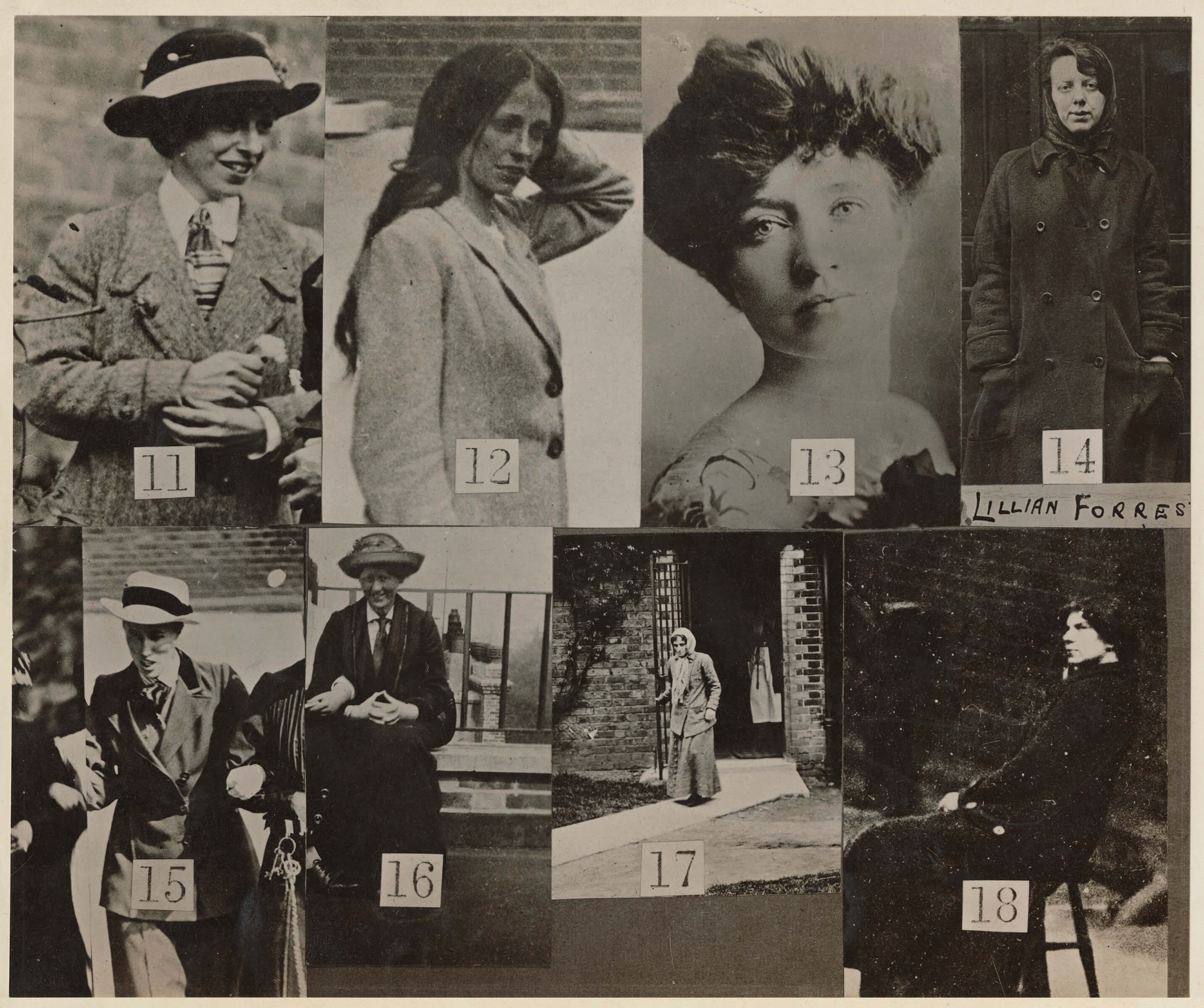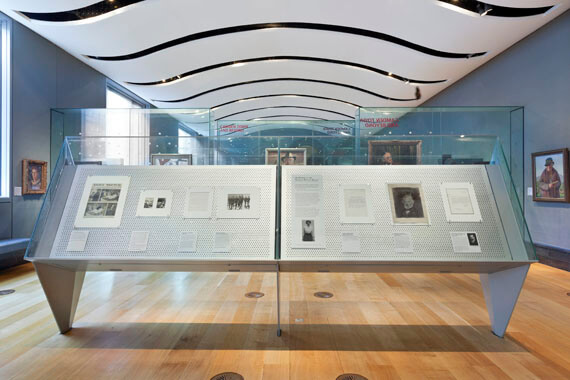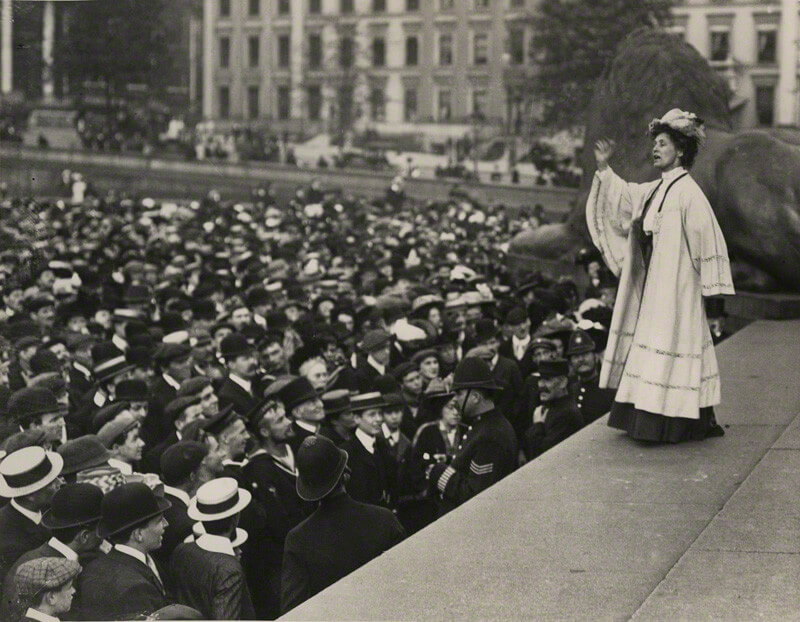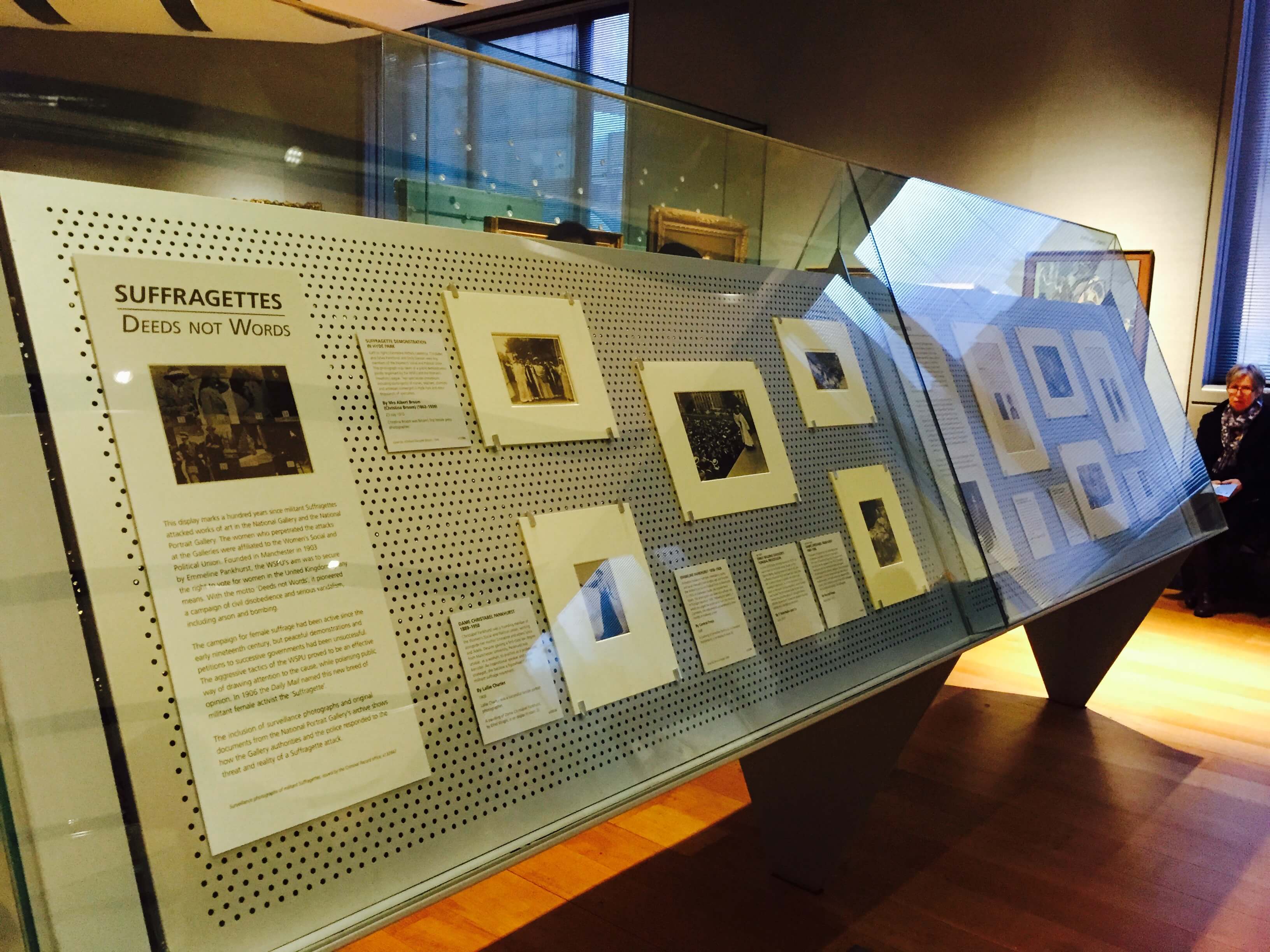Suffragettes: Deeds not Words @ NPG reviewed by Kiritia Barker
Images courtesy of the National Portrait Gallery
If we believe the old adage ‘there’s no such thing as bad publicity’ then feminism has been receiving some great publicity this past few weeks. There was The Sun’s carefully choreographed media stunt which saw the withdrawal and swift reinstatement of ‘Page Three Girls’. Then, following their wins at the Australian Open, tennis players Eugenie Bouchard and Venus Williams were asked to show off their outfits by twirling. Tory peer Karen Brady went on record to say that the word ‘feminist’ is ‘too radical and negative’ for young women to identify with. And finally, The Church of England consecrated its first female bishop, Reverend Libby Lane.
The roots of the British feminist movement are explored in The National Portrait Gallery’s recent display Suffragettes: Deeds not Words. The term ‘suffragette’ was first coined by The Daily Mail to describe a more radical element of the women’s suffrage movement. Suffragettes embraced demonstrations to catalyse social reform often chaining themselves to railings, damaging public buildings and committing arson.
The display features 13 mounted photographs and printed material. Amongst the most striking works in the display is a photograph of a portrait by John Sargent which was slashed by a suffragette. The act of vandalism resulted in many UK museums imposing restrictions on admittance to their galleries. For example, The British Museum enforced a policy of only admitting women if they were accompanied by a man who was willing to take responsibility for the woman’s actions. David Lindsay, 27th Earl of Crawford, 10th Earl of Balcarress Conservative MP and long serving trustee of the NPG was compelled to write to the director of the gallery. His letter is part of the display and makes for an interesting read.
Internal police documents and surveillance photographs are also featured in the display. Presented in a grid-like formation, the photographs call to mind what one would imagine was the authority’s fantasy line-up of suffragettes. The photograph of actress Kitty Marion stands apart from the others due to the fact it is in fact her acting headshot.
Opponents to the movement argued that the radical actions of the Suffragettes proved them to be unsound decision makers, and therefore inappropriate to vote. In other documents on display, the actions of the Suffragettes are described in emotive language with passages referring to ‘aggressive tactics’, ‘serious vandalism’ and ‘shocking damage’.
The display paints a picture of a time when civil disobedience was an effective device to bring the core issues of the time into the public domain. What the suffragettes would think of how feminist issues make the public domain today, who knows, but as David Lindsay commented on the attack of the NPG portrait it ‘shows how much we really are at the mercy of women who are determined…’
Kir itia is a visual storyteller at heart and a marketing consultant by trade. She holds a BA from the University of Tasmania and studied Marketing, Advertising & PR at Queens University Belfast.
itia is a visual storyteller at heart and a marketing consultant by trade. She holds a BA from the University of Tasmania and studied Marketing, Advertising & PR at Queens University Belfast.
Check out her Facebook and Twitter






